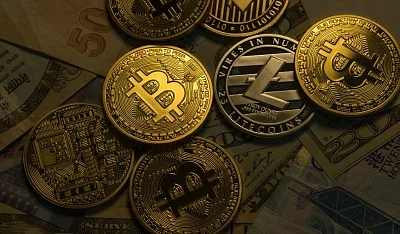The story of the collapse of Bahamas-based cryptocurrency exchange— FTX or Futures Exchange last week had been creating ripples across the financial world.
From a fascinating success story of three years since its inception by the brilliant founder Sam Bankman- Fried and reaching the second position in terms of crypto trading volumes with one million users, FTX descended to the stage of bankruptcy in a matter of months.
The Rise and Fall of FTX
In October 2021, FTX raised capital at a valuation of USD 25 billion from investors and had also signed a sponsorship deal with the Mercedes Formula 1 team besides significant contribution to philanthropy. It further raised USD 400 million from investors at a valuation of USD 32 billion and by July, it had signed a deal to buy Crypto lender BlockFi for USD 240 million.
However, things started changing from August when US Bank regulator asked FTX to stop misleading about the claims related with funds. It took just three months after the warning for FTX to head towards bankruptcy. Today, even after the collapse, it is estimated that there are around 250 million FTX tokens available in circulation.
FTX’s rival Binance which is also a crypto exchange and CoinDesk which publishes Crypto news had a role to play in the downfall. In the first week of November this year, CoinDesk published a balance sheet which showed irregularities in FTX, and showed that Alameda Research— Bankman-Fried’s crypto trading firm was very heavily dependent on FTX’s native token FTT worth around USD 14.6 billion.
Just a few days later, the CEO of Binance announced that he was liquidating the holdings of FTT due to unspecified “recent revelations''. These two pieces of news were enough to break the trust of people in FTX and users started withdrawing their crypto assets which led to its downfall.
Bitcoin’s Global Influence and Crypto Meltdown
It is reported that at least USD one billion of customers’ funds have vanished from FTX. While this is not the first time when people got betrayed while dealing with cryptocurrency, the collapse of FTX has raised more concerns because the worldwide cryptocurrency network has become bigger and popular despite people losing money, reflected volatility regularly and is now under the lens of many governments.
In a report published on 14 November this year, the Bank of International Settlements (BIS) stated that around 73%-81% of retail Bitcoin— the most popular cryptocurrency, buyers are likely to have lost money on investments.
Also, crypto meltdown has taken the crypto market down from USD three trillion in 2021 to USD one trillion in 2022. The cases of cryptocurrency fraud in the cases of the South Korean exchange Upbit in 2019 where USD 48 million worth of Ethereum was lost due to hacking, the hacking of Bitstamp in 2015 where 19000 bitcoins were stolen and the Bitfinex exchange attacks in 2016 where 119756 bitcoins worth about USD 72 million were stolen had sent shivers during those times but the FTX case is much bigger in impact and scale.
Can Crypto Be a Safe Bet?
Cryptocurrency works on blockchain technology which works as distributed ledger technology which contains blocks. These blocks are protected and secured by cryptography and are resistant to any kind of modifications of the original data in those blocks.
The cryptocurrency is protected with certain codes which are crucial for its usage and many times hackers target and break the code to access the user’s cryptocurrency which results in loss. Although, the blockchain is considered safe and secure, the fact that it operates in a decentralised form makes issues of management a concern compared to the financial currencies that are regulated and centralised.
As of September 2022, there are about 300 million active crypto users worldwide and out of which 115 million are from India. However, no statistics is available on the number of Indian cryptocurrency users impacted by the FTX tangle.
India’s Cryptocurrency Bid
Even if impacted, there is little that the Indian government or the central bank Reserve Bank of India (RBI) can do because there are no regulations in India for cryptocurrency. RBI has been expressing their concerns regularly about the impact of virtual currency and specially cryptocurrency on macroeconomic stability and indicated to the customers investing in those assists were doing at their own risk.
In 2001, the union government imposed a 30% tax rate and 1% TDS on virtual currency assets so as to dissuade people from investing in the sector and brining in some kind of regulation. India’s finance minister Nirmala Sitharaman also recently stated that India on its own, cannot ban crypto usage without an international collaboration and that every country should come on the same frame to decide the future of crypto and to see its advantages and disadvantages.
The RBI has recently launched a pilot project on the use of Central Bank Digital Currency (CBDC) and nine banks are already handling this pilot with a significant number of tokens.
There are indications that RBI will launch the full services soon once the pilot is successful and this would be another step to bring in regulated virtual currency different from the uncontrolled and decentralised cryptocurrency.
The FTX fiasco has brought many issues to the discussion table. It has shown how volatile the cryptocurrency ecosystem is and enhanced the need for regulatory watch and consultations among nations. The global taxation regime has to offer a workable approach sooner than later before more consumers lose money by investing.
(Subimal Bhattacharjee is a commentator on cyber and security issues around Northeast India. He can be reached @subimal on Twitter. This is an opinion piece and the views expressed are the author’s own. The Quint neither endorses nor is responsible for them.)
(At The Quint, we question everything. Play an active role in shaping our journalism by becoming a member today.)
